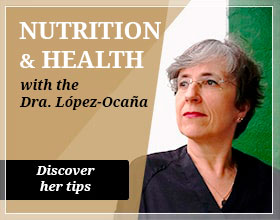Sometimes it seems that stress and anxiety are the same, but the reality is that they are not. Briefly (and I hope clearly) I am going to explain the difference and give a series of general tips that can help us cope or feel better. However, as always, it is necessary to consult health professionals to treat these pathologies.
Stress
You have to know that biological stress occurs as the body’s response to a challenge (think of a lion attack, and how our body responds by preparing to either attack or flee). With this definition:
- Eustress: when the response is consistent with the challenge and occurs at the time it occurs.
- Distress: when stress responses occur without a corresponding stimulus and are maintained over time.
It is in the latter case that stress can cause health problems such as an increase in blood pressure, intestinal disorders, dermatological disorders, headaches, fatigue, promote drug use, etc.
Anxiety
In summary, it can be stated that anxiety is a fear of the future, and it can be a reaction to stress that is maintained over time (distress). It is usually very typical of those people who have to have everything under control.
There are usually symptoms such as thoughts that are difficult to control and changes in behavior (avoidance of situations that cause anxiety) and physical symptoms such as palpitations, dizziness, shortness of breath, etc.
What can be done to improve anxiety?
- As I mentioned at the beginning -and I always say- you have to consult with health professionals, take medication if necessary, do psychotherapy…
- Do some physical activity, as it contributes to the release of endorphins.
- Practice of yoga or mindfulness (being here, in the moment).
- Good dietary guidelines:
- Intake of unsaturated fatty acids: oily fish (anchovies, pomfret, sardines… that can be canned), nuts (natural and/or roasted), and seeds (such as flax or chia)…
- Foods rich in serotonin or 5 HTP (serotonin precursor): chicken and turkey, banana, eggs, avocado, natural peanuts, dark chocolate, oatmeal, brown rice, pumpkin and sunflower seeds, pistachios…
- Foods rich in vitamin C and D: kiwis, strawberries and other red fruits; red and green peppers, oranges, tangerines, cheese, eggs, oily fish.
Good guidelines that help us in our well-being in an integral way.
Good spring!








 Send us your recipe and win a fish preserved box
Send us your recipe and win a fish preserved box



